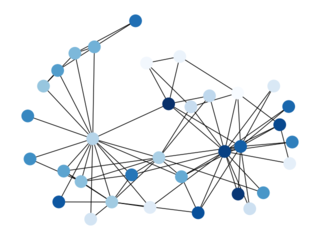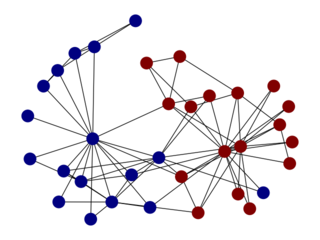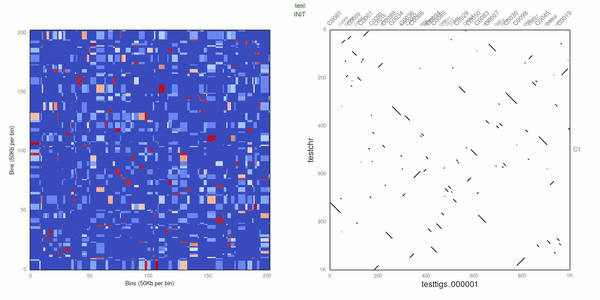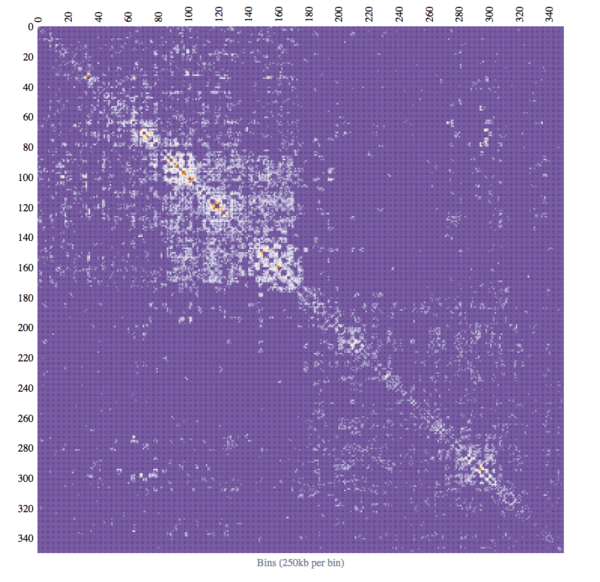_ _____ _____ ____ ____ _____ ______
/ \ |_ _| |_ _| |_ || _||_ _|.' ___ |
/ _ \ | | | | | |__| | | | / .' \_|
/ ___ \ | | _ | | _ | __ | | | | |
_/ / \ \_ _| |__/ | _| |__/ | _| | | |_ _| |_\ `.___.'\
|____| |____||________||________||____||____||_____|`.____ .'
| Authors | Haibao Tang (tanghaibao) |
| Xingtan Zhang (tangerzhang) | |
| [email protected] | |
| License | BSD |
This program can be used to scaffold genomic contigs based on Hi-C data, which is particularly effectively for auto-polyploid genomes. We currently recommend using this program in a scripted pipeline, as detailed here.
The easiest way to install allhic is to download the latest binary from
the releases and make sure to
chmod +x the resulting binary.
If you are using go, you can build from source with:
go get -u -t -v github.com/tanghaibao/allhic/...
go install github.com/tanghaibao/allhic/cmd/allhicExtract does a fair amount of preprocessing: 1) extract inter-contig links into a more compact form, specifically into .clm; 2) extract intra-contig links and build a distribution; 3) count up the restriction sites to be used in normalization (similar to LACHESIS); 4) bundles the inter-contig links into pairs of contigs.
allhic extract tests/test.bam tests/seq.fasta.gzThis prune step is optional for typical inbreeding diploid genomes. However, pruning will improve the quality of assembly of polyploid genomes. Prune pairs file to remove allelic/cross-allelic links.
allhic prune tests/Allele.ctg.table tests/test.pairs.txtPlease see help string of allhic prune on the formatting of
Allele.ctg.table.
Given a target k, number of partitions, the goal of the partitioning
is to separate all the contigs into separate clusters. As with all
clustering algorithm, there is an optimization goal here. The
LACHESIS algorithm is a hierarchical clustering algorithm using
average links, which is the same method used by ALLHIC.
allhic partition tests/test.counts_GATC.txt tests/test.pairs.txtCritically, if you have applied the pruning step above, use the "pruned" pairs:
allhic partition tests/test.counts_GATC.txt tests/test.pairs.prune.txtGiven a set of Hi-C contacts between contigs, as specified in the clmfile, reconstruct the highest scoring ordering and orientations for these contigs.
Optimize uses Genetic Algorithm (GA) to search for the best scoring solution. GA has been successfully applied to genome scaffolding tasks in the past (see ALLMAPS; Tang et al. Genome Biology, 2015).
allhic optimize tests/test.counts_GATC.2g1.txt tests/test.clm
allhic optimize tests/test.counts_GATC.2g2.txt tests/test.clmBuild genome release, including .agp and .fasta output.
allhic build tests/test.counts_GATC.2g?.tour tests/seq.fasta.gz tests/asm-2g.chr.fastaUse d3.js to visualize the heatmap.
allhic plot tests/test.bam tests/test.counts_GATC.2g1.tourPlease see detailed steps in a scripted pipeline here.
- Add partition split inside "partition"
- Use clustering when k = 1
- Isolate matrix generation to "plot"
- Add "pipeline" to simplify execution
- Make "build" to merge subgroup tours
- Provide better error messages for "file not found"
- Plot the boundary of the contigs in "plot" using genome.json
- Add dot plot to "plot"
- Compare numerical output with Lachesis
- Improve Ler0 results
- Translate "prune" from C++ code to golang
- Add test suites
Zhang, X. Ming, R. Tang H. ALLHiC: phasing and scaffolding polyploid genomes based on Hi-C data. Submitted.



